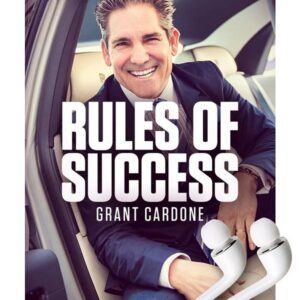The Typical Path of a Freelancer Writer Goes a Liiiiiiittle Bit Like This…
You study English Lit, Communications, PR, or something obscure, like Canadian Studies (eh?)—and then somehow, by some grace of resumé roulette, end up working as an admin assistant for a company that sells lawn fertilizer. (It’s not exactly writing, but you do get to write late payment notices???)
Eventually, your boss, Alan, calls you “toots” for the 500th time and you realize you are not living your best life, prompting you to make a set of determined fists and decide to hang your shingle as a freelance writer. You know nothing about freelance writing, not yet anyway, but you do know you can write a damn good sentence, so in order to prove it to yourself, you write the world’s most clever Fiverr profile known to humankind.
Take that, Alan!
And then……..crickets. Big, fat, demoralizing ones.
Until, of course, one day when you get an inquiry from a living, breathing client. A real person! Who wants to give you money! You are so excited. So excited you even forget about lunch. You start work right away. Put your head down and come up with a fancy-looking proposal. Try to be all professional and legit. And then, you reply to the client’s inquiry…
…only to discover that they would like you to transcribe 4,500 hours of church sermons for 14 cents.
So you do what anyone in your position would do: you accept! And you even offer to lower it to 12 cents—you know, for the entire project—because beggars can’t be choosers. Right? Your Aunt Lisa keeps telling you that, anyway, and you believe her.
Eventually, however, you score a better gig: one with a pharmaceutical company. They want you to write “white papers,” which sounds really important. You like sounding important. It legitimizes the decision you made. Now you can tell Aunt Lisa you’re writing for a pharmaceutical company! Surely that will impress.
There’s only one problem:
You’re bored to t-e-e-e-e-ars by your work. Wasn’t this supposed to be better? Wasn’t this supposed to light up your soul? Fulfill your creative passions? Make you feel ALIVE????????
You don’t know how to get paid for the type of writing you really want to do: creative, fun, fulfilling, hilarious, lovely, wonderful content you’re actually interested in.
Say “Au Revoir” to Uninspiring Projects From Hell (That Pay Crap & Make Driving for Uber Seem More Lucrative)
Most freelance writers? They strike it out on their own (hooray!)—buuuuttttt then, to make ends meet, end up writing about things that bore ‘em s-t-i-i-i-f-f-f-f. Cue: the land of medical device companies, case studies, technical manuals, SEO keywords, and glazing over the words “Advanced Glycation End Products.” Oh, who doesn’t love an Advanced Glycation End Product?!
Let’s face it: unless you’re a magic wizard / elf / gnome / fairy (so many options!), it’s really hard to find creative writing work that feeds your soul AND your bank account…unless you know how.
That’s where we come in.
For Creative Writers Who Want to Earn $100,000+ Doing Work That’s Fun
The Meaty, Hairy Guide to Selling Your Creative Writing will show you how to go from desperate dabbler to in-demand creative darling. You’ll learn how to stand out from the sea of ONE BILLION WRITERS (seemingly), how to position & market yourself as a pro, how to make the phone ring off the hook (just kidding, nobody answers the phone anymore), and most importantly, command 3X more compensation for your writing than you probably are now—and that’s just to start.
If you’re serious about earning $100,000+ as a creative writer who gets to write fun, fresh, cool things for a living instead of dreary old white papers—you need this.
Don’t Charge $15/Hour—Learn How to Charge $150
You might be like, what? I wouldn’t even charge $150 for my organs! But half of the battle is setting aside your own money story and not making assumptions about what a client can or can’t afford. (Some people think a $3M penthouse is astronomical, but you don’t see penthouses lowering their value so everyone can afford one. Au contraire: they find the right people who can.)
Your job is not to make financial decisions for other people; your job is to make every single one of ‘em ache so badly to do business with you, cost becomes invisible—all they see is value. And guess what? There are plenty of clients who happily pay $150/hr without batting an eyelash. In fact, in some industries it’s standard.
The question is: how do you find them? How do you know what to charge? How do you get over your own money anxieties?
That’s what this course is for.
It’s Okay If You’re Inexperienced and Don’t Have a Portfolio Yet
Don’t you worry about the size—or lack thereof—of your portfolio: the whole point of this guide is to learn! We’ll be starting at ground zero to teach you all the “how to earn a living writing creatively for damn good money” basics you need to know, and then graduating week-by-week into more advanced professional & business strategies and tactics. The Meaty, Hairy Guide to Selling Your Creative Writing was developed exclusively for creative writers going freelance who need to learn not only what makes a sentence work, but what makes a business work, too.
Here’s What’s in This Fun-Filled Freelancing Guide:
-
Writing, Money, Cashflow—And How to 3X Your Compensation ?
Or: It’s not what your writing costs, it’s what it’s worth—and how to price yourself accordingly (plus the most common pricing pitfalls of doooom.) -
Standing Out, Finding Lucrative Gigs, and Crafting Strategic Expertise ??
Your job is not to write: it’s to solve people’s problems with your writing. This means you need to approach your creative writing business MUCH differently than other freelance writers. (Hint: A lot of the selling you will do happens on what’s called “the back end”—and no, it won’t be on your website…and no, you won’t be on Fiverr.com, either!) -
Getting Your Name Out There ?
How does a writer build a reputation? How do you become THE go-to writer with a waitlist? Here, we’ll talk about the 3 places you MUST publish your writing, and for three very different reasons: one is for exposure, one is for sales, and the third is for trust. -
Say This When You Get an Inquiry…Not That! (Massively Important) ?
There’s a lot that can help you in the world of freelancing, but fewer things will be (surprisingly) more important than this. Get this step right, and you can quadruple your earnings with our process. -
Say These Magic Words Over the Phone ?
You’ve gotten a new client inquiry—woo hoo!—and now it’s time to get on the phone. ACK, I KNOW, SCARY. But also totally not scary once you learn the #1 thing you need to do when you get on the phone—and how handle the conversation like a pro. The best part? You WON’T have to answer the “how much does this cost?!” money question! (Phew.) In fact, our process requires that you don’t. -
How to Write a Proposal That Sells ?
Yes, you do need a proposal and here’s why: it’s the difference between eating at a fast-food burger joint and a Michelin-starred restaurant: same ingredients, much different price points. (Plus, without one, you’re going to end up making 50% less money, while doing 50% more work. Eeeekkkk.) -
A Meaty, Hairy Proposal in the Flesh ⚡️
Of COURSE we’ve gone ahead and developed a professional client proposal, in-full, so you can see a solid example of the type of information you need to include, and how to word it so it SELLS. And not just sells, but earns double, triple, quadruple the rate. -
Client Follow-Up & Closing the Deal ?
There are six possible scenarios that can happen once you send the proposal—and we’re going to go through ALL of them to help you close the client and rock the biz…for more money than you ever imagined. -
Professional Contracts & Agreements (Yay!) ?
Sending a lock-tight client contract is not weird, not overkill, and not going to make you look like you’re an untrusting, suspicious little worm. ? It’s going to have the opposite effect: it’s going to make you look like a pro. (It’s also going to defend you from chargebacks, mid-project cancellations, non-payment and other incidents that sometimes happen.) -
Client Onboarding & Best Practices for Project Management ?♀️
You know what’s actual magic in disguise? Deadlines! Even though you’re a freelancer now and you want to run off into the sunset with a cocktail without ever having another deadline again, learning how to assign yourself, and your clients, deadlines is a critical part of the planning & project management that will, I promise, give you MORE freedom, not less. -
Deliver Your Draft So They’ll Respect Your Effort ?
Otherwise titled: how to deliver your, ahem, delicious deliverables so that the client is 700,528% more likely to LOVE THEM. Packaging makes a big difference in perception, so here you’re going to learn how to “dress” your writing for success. -
Extend Client Lifetime Value—And Make Every Client Worth Three ?
Most freelancers wrap up a project and then they’re onto the next one: searching, hunting, scrambling, constantly looking for business. They’re onto the next client, the next gig, the next thing. But what they don’t realize is: the business is right in front of them! They’ve just got to learn how to take it. In our final lesson, I’ll teach you how to re-pitch your existing clients and get them signed up for monthly retainers…so you get consistent, predictable revenue, and they get a solid partner who’s going to help them crush it over and over again! ?
Get Started Right Away
When you purchase The Meaty, Hairy Guide to Selling Your Creative Writing, you’ll be able to download right away for instant access (137-page PDF of selling instructions), plus our template kit with contracts, proposals, and scripts—all in one package so you can get started right away without waiting, wading through time-intensive videos, or needing to get on Zoom. Just purchase and download!
Sales Page:_https://www.meatandhair.com/the-meaty-hairy-guide-to-selling-your-creative-writing




